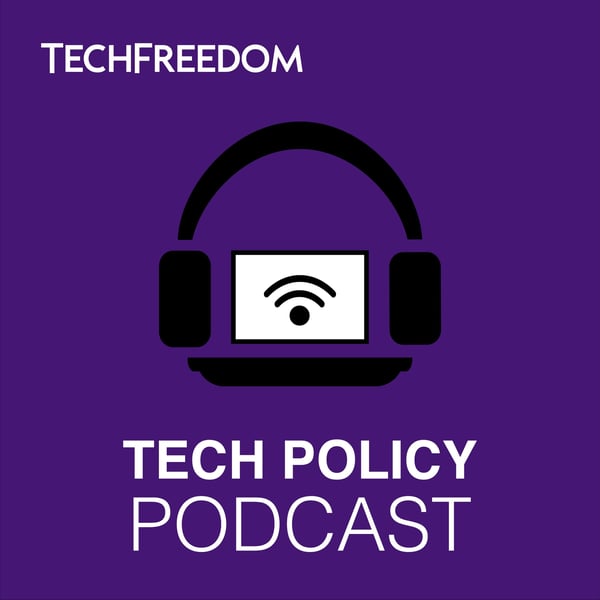395: The Digital Fourth Amendment — With Orin Kerr
Tech Policy Podcast
TechFreedom
4.8 • 45 Ratings
🗓️ 23 January 2025
⏱️ 51 minutes
🧾️ Download transcript
Summary
Transcript
Click on a timestamp to play from that location
| 0:00.0 | Computers, my guest today writes, raise a major challenge for interpreting the Fourth Amendment. |
| 0:32.4 | The digital world contains so much data, he continues, and its collection is so divorced from the physical principles |
| 0:39.7 | governing existing rules, that applying those rules threatens to dramatically expand government |
| 0:46.9 | power. Enter the Digital Fourth Amendment. That's both the title of the great Orrin Kerr's fantastic new book, |
| 0:57.6 | as well as the new body of Fourth Amendment principles he says we need to meet the challenge |
| 1:02.8 | of ever-advancing technology. The privacy dystopia is avoidable, Warren writes. This book explains how. |
| 1:13.5 | It identifies new rules to restore the function of Fourth Amendment law. |
| 1:18.7 | The Constitution should impose the same limits in the digital realm that it does in the physical one. |
| 1:25.9 | Welcome to the tech policy podcast. |
| 1:29.4 | I'm Corbyn Barthold. |
| 1:31.6 | Oren was until recently a professor at Berkeley Law, a great law school, if I say so myself. |
| 1:39.2 | Just this month, he moved across the bay to Stanford Law, which I guess is okay to. Professor, welcome. It's an |
| 1:48.6 | honor to have you back on the show. Corbin, it's so great to be back. Thanks for having me. |
| 1:54.0 | Loved the book. Excited to dive in. Let's start at the very beginning, by which I mean the beginning of the Republic. |
| 2:02.8 | One of the oddities about the Fourth Amendment is that although by now it is quite a prominent |
| 2:08.8 | part of the Constitution, it was something of an afterthought when it was ratified. |
| 2:14.8 | It seems that little thought went into forming its original meaning beyond the fact that |
| 2:21.4 | the founders hated general warrants. We know that much. Great. So exactly, as you say, |
| 2:27.6 | Corbyn, the framers were really focused on general warrants, this idea that when the government |
| 2:32.0 | got a warrant to break into someone's house, |
| 2:35.1 | search for typically stolen goods at the time, it had to be a limited warrant. It couldn't |
| 2:40.2 | be something that allowed the government to go anywhere, take anything. And that was really the |
... |
Please login to see the full transcript.
Disclaimer: The podcast and artwork embedded on this page are from TechFreedom, and are the property of its owner and not affiliated with or endorsed by Tapesearch.
Generated transcripts are the property of TechFreedom and are distributed freely under the Fair Use doctrine. Transcripts generated by Tapesearch are not guaranteed to be accurate.
Copyright © Tapesearch 2025.

